第33章
THE BEASTS' CONFESSION (1732).
WHEN beasts could speak (the learned say They still can do so every day), It seems, they had religion then, As much as now we find in men.
It happened when a plague broke out (Which therefore made them more devout)The king of brutes (to make it plain, Of quadrupeds I only mean), By proclamation gave command, That every subject in the land Should to the priest confess their sins;And thus the pious wolf begins:
Good father, I must own with shame, That, often I have been to blame:
I must confess, on Friday last, Wretch that I was, I broke my fast:
But I defy the basest tongue To prove I did my neighbour wrong;Or ever went to seek my food By rapine, theft, or thirst of blood.
The ass approaching next, confessed, That in his heart he loved a jest:
A wag he was, he needs must own, And could not let a dunce alone:
Sometimes his friend he would not spare, And might perhaps be too severe:
But yet, the worst that could be said, He was a wit both born and bred;And, if it be a sin or shame, Nature alone must bear the blame:
One fault he hath, is sorry for't, His ears are half a foot too short;Which could he to the standard bring, He'd show his face before the king:
Then, for his voice, there's none disputes That he's the nightingale of brutes.
The swine with contrite heart allowed, His shape and beauty made him proud:
In diet was perhaps too nice, But gluttony was ne'er his vice:
In every turn of life content, And meekly took what fortune sent:
Enquire through all the parish round, A better neighbour ne'er was found:
His vigilance might seine displease;
'Tis true, he hated sloth like pease.
The mimic ape began his chatter, How evil tongues his life bespatter:
Much of the cens'ring world complained, Who said his gravity was feigned:
Indeed, the strictness of his morals Engaged him in a hundred quarrels:
He saw, and he was grieved to see't, His zeal was sometimes indiscreet:
He found his virtues too severe For our corrupted times to bear:
Yet, such a lewd licentious age Might well excuse a stoic's rage.
The goat advanced with decent pace:
And first excused his youthful face;
Forgiveness begged, that he appeared ('Twas nature's fault) without a beard.
'Tis true, he was not much inclined To fondness for the female kind;Not, as his enemies object, From chance or natural defect;Not by his frigid constitution, But through a pious resolution;For he had made a holy vow Of chastity, as monks do now;Which he resolved to keep for ever hence, As strictly, too, as doth his reverence.
Apply the tale, and you shall find How just it suits with human kind.
Some faults we own: but, can you guess?
Why? - virtue's carried to excess;
Wherewith our vanity endows us, Though neither foe nor friend allows us.
The lawyer swears, you may rely on't, He never squeezed a needy client:
And this he makes his constant rule, For which his brethren call him fool;His conscience always was so nice, He freely gave the poor advice;By which he lost, he may affirm, A hundred fees last Easter term.
While others of the learned robe Would break the patience of a Job;No pleader at the bar could match His diligence and quick despatch;Ne'er kept a cause, he well may boast, Above a term or two at most.
The cringing knave, who seeks a place Without success, thus tells his case:
Why should he longer mince the matter?
He failed because he could not flatter:
He had not learned to turn his coat, Nor for a party give his vote.
His crime he quickly understood;
Too zealous for the nation's good:
He found the ministers resent it, Yet could not for his heart repent it.
The chaplain vows he cannot fawn, Though it would raise him to the lawn:
He passed his hours among his books;
You find it in his meagre looks:
He might, if he were worldly-wise, Preferment get, and spare his eyes: